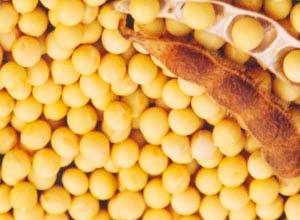Source: Xinhua
04-15-2009 10:50
Special Report: Tech MaxWASHINGTON, April 14 (Xinhua) -- An invasion of soybean aphids poses a problem for soybean farmers requiring application of pesticides, but a team of Pennsylvania State University entomologists thinks a careful choice of nitrogen-fixing bacteria may provide protection against the sucking insects, according to a Tuesday press release from the university.
 |
| "Natural" nitrogen-fixing bacteria protect soybeans from aphids |
Soybeans are legumes, plants that can have a symbiotic relationship with nitrogen-fixing bacteria -- rhizobia -- and therefore do not need additional nitrogen fertilizer. Each type of legume -- peas, beans, lentils, alfalfa -- have their own rhizobia.
"Soybeans are from Asia and so there were originally no nitrogen-fixing bacteria that would colonize soybeans in U.S. soils," said Consuelo De Moraes, associate professor of entomology." The rhizobia had to be transferred here."
The soybean aphid is also not native to North America. This pest only began to infest soybean fields about 10 years ago but are now fully established pests requiring pesticide applications to avoid the loss of as much as 40 percent of the crop. The researchers investigated the relationship between the type of rhizobia colonizing soybean plants and the plants' infestation with the aphids.
"Our results demonstrate that plant-rhizobia interactions influence plant resistance to insect herbivores and that some rhizobia strains confer greater resistance to their mutualist partners than do others," the researchers report in the journal Plant and Soil online.
